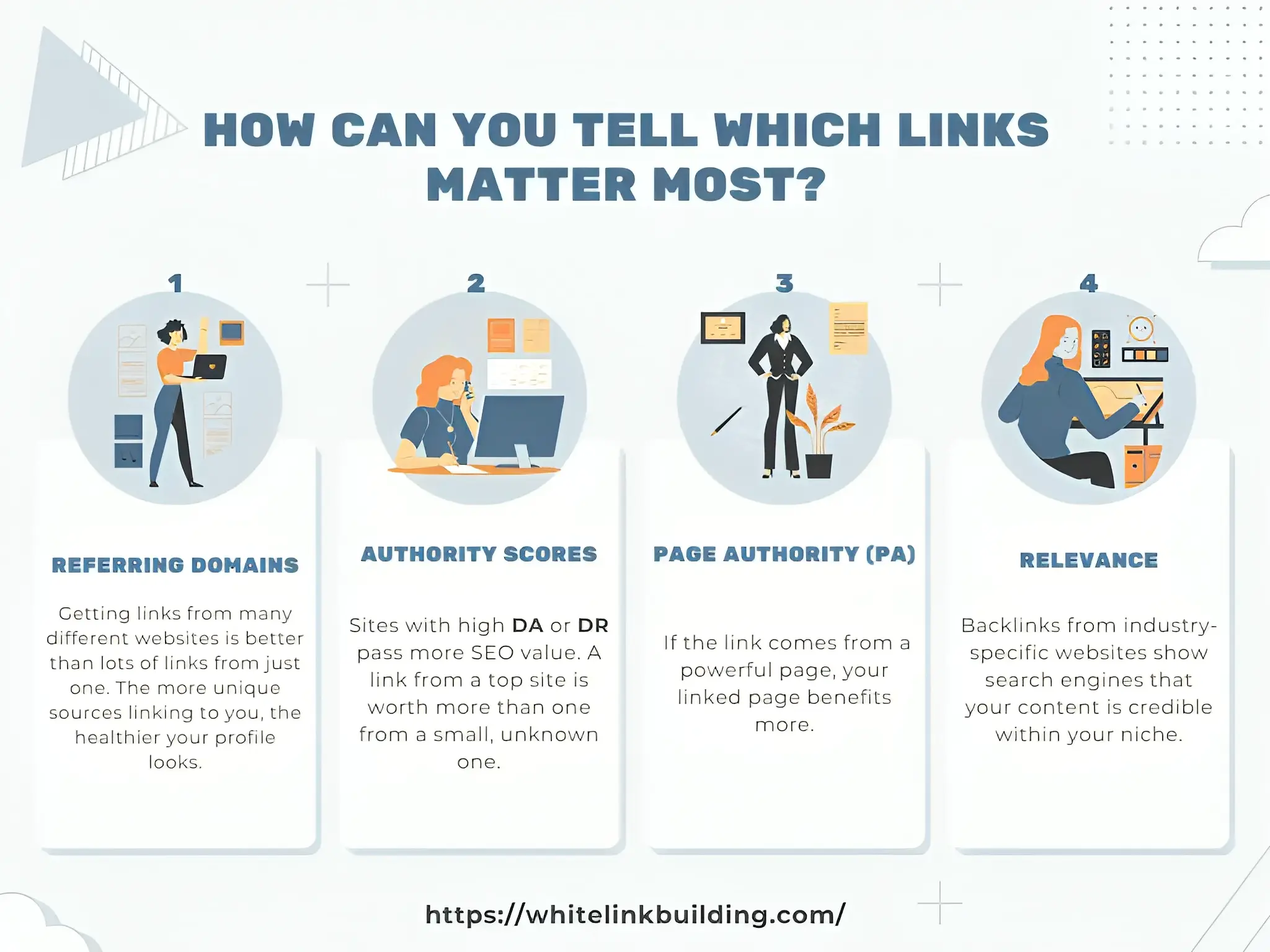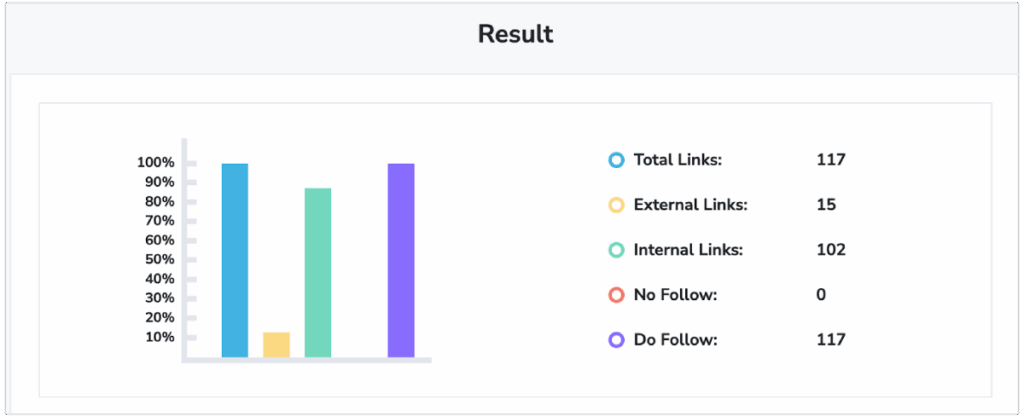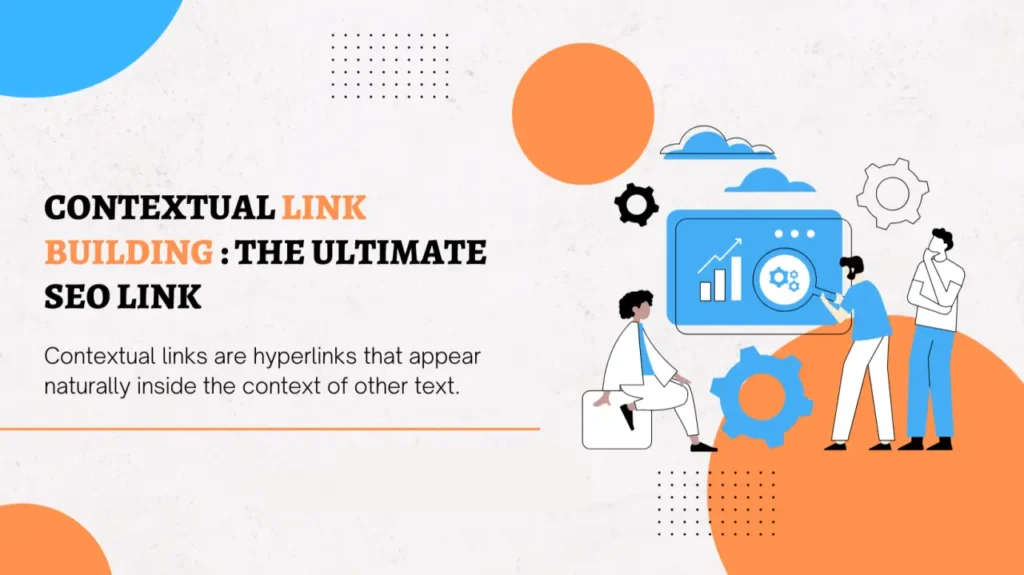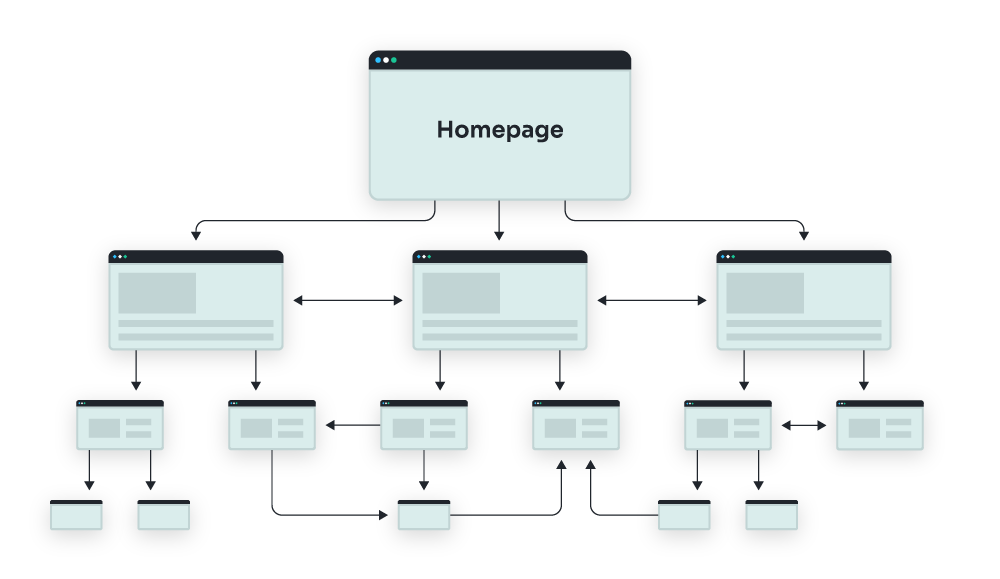
Link building for ecommerce isn’t just about getting more backlinks; it’s about earning the right ones that improve search visibility, drive qualified traffic, and boost revenue. With countless online stores competing for attention, your ability to build a strong, natural link profile can set you apart.
Search engines rely on page rank, topical relevance, and link equity to determine which sites deserve top positions. That’s why modern ecommerce link building must be strategic, diverse, and aligned with your brand’s authority.
Begin by creating valuable content such as detailed guides, honest reviews, or unique insights that naturally attract attention and encourage sharing. For example, a skincare store might publish a comprehensive guide on “How to Choose the Right Moisturizer” that bloggers and influencers want to reference.
Next, connect with relevant blogs, influencers, and industry communities to build genuine relationships that lead to high-quality, contextual backlinks. It’s important to keep your link profile healthy by regularly monitoring your backlinks and ensuring your anchor texts remain diverse and natural.
Link building means getting other websites to link back to your ecommerce store. Think of these backlinks as votes of confidence telling search engines your site is trustworthy and relevant. When done right, this helps your product and category pages rank higher, which means more eyes on your store and more sales.
The real magic happens when these backlinks pass link equity (also called link juice). That’s the SEO value that flows from one page to another through links, boosting your page authority (PA) and your overall site strength, measured by things like domain authority (DA) and domain rating (DR).
Not all backlinks are created equal. Here’s what you want to focus on:

Keeping an eye on these helps you prioritize quality over just numbers.
When building links, anchor text matters. It’s not just about getting backlinks, it’s about how those links describe your site. The words people click on help define the value and relevance of your page to both users and linking websites.
Use a natural mix. That includes your brand name, generic terms like “click here”, and relevant keywords that describe your product or service. This keeps your backlink profile clean and trusted across different domains.
Overusing the same anchor text looks forced and can make your links seem unnatural. But a balanced variety shows authenticity, improves credibility with site editors, and increases the chances of getting more quality placements that help.
Absolutely. Both play important roles in a well-rounded link building strategy. Dofollow links directly impact your site’s authority by passing ranking power from one page to another. These are the links that search engines value most when determining your site’s relevance and trustworthiness.
But that doesn’t mean nofollow links should be ignored. They may not pass authority, but they still offer value. Nofollow links can drive targeted traffic, improve brand exposure, and build credibility, especially when they come from reputable platforms like forums, news sites, or social media.
Think about it, if every link to your site came from just one type of source, like only blogs or only social media, it would raise eyebrows. Search engines expect a natural variety of backlinks from different places such as blogs, news outlets, forums, social platforms, directories, and niche sites.

This diversity tells search engines your website is genuinely valuable across multiple communities and industries, not just in one corner of the web. It also makes your backlink profile stronger and more resilient, protecting your site if one source loses authority or relevance.
In short, diverse backlinks build trust, improve your site’s reputation, and help maintain steady search rankings over time.
Topical relevance plays a key role in how search engines judge the value of your backlinks. If you sell skincare products, a link from a trusted health or beauty blog carries much more weight than one from an unrelated site, like a tech or automotive blog.
This relevance signals to search engines that your site is an authority within your niche, making it easier to rank higher for related searches. For example, if a popular beauty influencer links to your product review, it not only drives targeted traffic but also grows your credibility in the skincare community.
Contextual links are hyperlinks placed naturally within the main content of a page, such as inside a blog post or article. Unlike links in footers or sidebars, these links appear where they make sense and add value to the reader.

Because they’re surrounded by related information, search engines see contextual links as more relevant and trustworthy. For example, a link to your product inside a detailed skincare routine article holds more weight than a random link in a website’s footer.
Aiming for contextual links helps improve your site’s authority and drives targeted traffic from readers already interested in your topic.
These terms might sound complex, but with examples, they become clear, and each plays a valuable role in boosting your site’s authority.
It happens when your brand or site is mentioned without a link. For example, a popular beauty magazine mentioning your skincare brand by name, even without linking, still signals trust to search engines. This helps increase your brand awareness and authority.
It’s when two sites mention your brand alongside another. For instance, a wellness blog referencing both your skincare line and a leading competitor connects your site to a relevant network. This association improves your site’s relevance and can boost rankings.
It refers to keywords or phrases appearing near your brand name. If terms like “natural skincare” are frequently found close to your brand in articles or reviews, it strengthens your topical authority. This helps search engines better understand your niche and expertise.
Together, these signals create a richer context around your brand, enhancing your online credibility and search visibility.
Search engines prioritize fresh and regularly updated content because it signals that your site is active and relevant. For ecommerce sites, this means consistently updating product pages, blogs, and category descriptions to reflect new information or trends.
Fresh content naturally attracts new backlinks as other sites reference your up-to-date information, which boosts your site’s authority. It also improves your link velocity, the steady rate at which your site gains new backlinks. Maintaining a consistent link velocity shows search engines that your growth is organic and trustworthy.
Link building can sometimes feel confusing, especially if you’re not sure where to begin or how to proceed. If you need clear guidance and professional support, we’re here to help. At Whitelinkbuilding.com, our team provides expert advice and customized strategies to make the process straightforward and effective. Whenever you need assistance or direction, you can rely on us to guide you confidently toward achieving your link-building goals.
Leveraging your most valuable content through internal linking amplifies the impact of your entire site. When you connect useful, high-performing articles to related product pages or blog posts, you create a network that improves user navigation and distributes link equity intelligently.

This keeps visitors engaged longer and signals to search engines which pages carry importance, reinforcing your topical authority and improving indexing and rankings sitewide.
Affiliate partnerships offer more than just a boost in sales; they can also be a valuable part of your e-commerce link-building strategy. Since your affiliates often have well-established content where your links fit naturally, these backlinks feel authentic and relevant rather than overly promotional.
However, there is an important consideration: Google’s guidelines require that affiliate links be marked as “sponsored.” This means these links carry less SEO weight compared to regular backlinks. While sponsored links may not significantly boost your site’s rankings or domain authority, they still provide tangible benefits like increased referral traffic and enhanced brand visibility.
For example, Byrdie’s article listing 28 skincare brands includes affiliate links marked as sponsored, maintaining transparency while benefiting from natural backlinks. Similarly, the fashion blog “The Zoe Report” features affiliate partnerships within curated style guides, providing valuable exposure and links without compromising search engine guidelines.
Black-hat link building refers to tactics that try to manipulate search rankings through shortcuts like buying links, using automated tools, or creating spammy backlinks. While these methods might promise quick results, they violate search engine guidelines and often lead to severe penalties.

Search engines can detect these manipulative practices and may respond by dropping your site’s domain authority (DA) and page rankings sharply. Instead of risking your site’s reputation, focus on earning genuine, high-quality links through valuable content and authentic relationships.
Adding well-researched FAQs to your product pages does more than educate; it strengthens your link building strategy and targets high-intent keywords. These bottom-of-funnel questions address real customer concerns and can earn backlinks by providing genuinely useful information that others want to reference.
Take the example of a smart lock product. If one of the top questions people ask is, “What happens if the smart lock battery dies?”, and you answer it clearly on your product page, you’re doing two things at once: earning trust and capturing search traffic. These answers not only help rankings but can also convert hesitant buyers by resolving doubts.
For example, SimpliSafe owns the featured snippet for that very search term. Another strong example is Dyson, whose vacuum product pages address questions like “Can this vacuum work on pet hair?”, targeting customer worries and boosting discoverability.
Successful eCommerce link building hinges on quality, relevance, and diversity. To strengthen your site’s authority and boost search rankings, focus on earning authoritative backlinks, optimizing anchor text naturally, and maintaining fresh, valuable content. Strategic internal linking and understanding citation signals further enhance credibility.
Building a strong foundation takes time, but the results speak for themselves: higher visibility, improved customer trust, and sustainable growth. If you’re ready to take your link-building strategy to the next level, we’re here to help! Visit WhiteLinkBuilding.com and let’s build something great together.
What are the best link-building strategies for ecommerce websites?
Top-performing ecommerce link-building strategies include publishing product guides, guest posting on niche blogs, and building backlinks through influencer collaborations. These approaches attract high-quality, relevant backlinks that improve domain authority and boost organic traffic to product and category pages.
How do backlinks improve ecommerce SEO and increase sales?
Backlinks from authoritative sites pass link equity, which helps search engines rank your pages higher. Higher rankings for product and category keywords mean more visibility, more clicks, and more qualified customers, directly impacting your online store’s conversions and revenue.
Should ecommerce stores buy backlinks or focus on organic link building?
Buying backlinks can lead to penalties and reduced search rankings. Ecommerce stores should focus on organic link building through valuable content, partnerships, and digital PR. Google rewards natural, contextual links that reflect genuine authority and topical relevance.